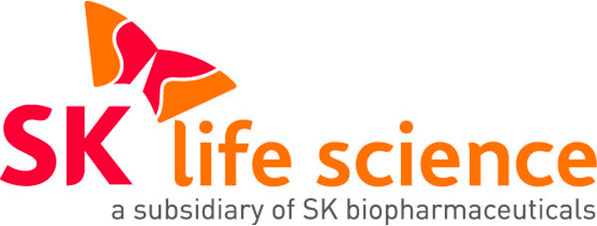December 12, 2016
Yuma Sun
Matt Harding
Editor’s note: This story is the first in a two-part series about the impending minimum wage increase in Arizona. Pick up next Sunday’s paper to read about how it’s affecting local businesses.
With more than 2,000 Yuma residents in its various programs and approximately 300 employees, the Saguaro Foundation is worried it’ll have to close as soon as Feb. 1 if additional state or federal funding isn’t allocated.
That’s because payroll costs for the private nonprofit, which has programs for the developmentally disabled, will go up dramatically due to the minimum wage increase that takes effect at the start of 2017.
About $60,000 a month — nearly $750,000 a year — is needed to offset the added payroll costs, says Mike Van Guilder, Saguaro’s executive director.
Small increases in the minimum wage over the past decade have cost the organization about $75,000 annually, but the nearly 25 percent minimum wage increase going into effect Jan. 1 — from the current $8.05 an hour to $10 an hour — is far too great, Van Guilder said. It will rise to $12 an hour by 2020.
“With the state funding at the levels it’s been over the last 10 years, there’s no surplus (and) there’s no excesses,” he said. “In fact, we’ve operated at a deficit ever since then.
“It’s just a battle that we can’t win.”
Roughly 70 percent of Saguaro Foundation’s 300 employees currently make the $8.05 wage, and the remaining 30 percent make above that hourly wage.
Ed Lohman, chairman of the organization’s board of directors, said that the employees “deserve a heck of a lot more,” but says there is simply no funding available — made worse by the voter-mandated minimum wage increase.
Since the majority of the foundation’s costs are personnel related, Van Guilder said he’s looking for state and federal funding increases as soon as possible.
He’s already had to cut the equivalent of three full-time employees, he said, by putting people at part-time hours. Health insurance and dental care were also recently eliminated, effective Dec. 1.
“Our cutbacks right now are to save enough money so that we can move into January, and still make payrolls and whatnot, (and) maybe stay alive for a month.”
Van Guilder is counting on action from the state legislature or governor to remain open.
But with Saguaro Foundation, he said the impact isn’t only on jobs.
“It’s the pain and suffering that we’re going to cause families (by closing),” he said. “Can you imagine somebody who’s been in our group homes for 30 or 40 years now thrown out of that?”
Statewide, Van Guilder says there are about 35,000 people in state programs for the developmentally disabled. “What are they going to do?” he asked. “Throw 35,000 people into the streets and abandon them?”
12/13/2016 Prop 206 fallout: Minimum wage hike could close Saguaro Foundation, impact other programs for disabled and elderly | Business | yumasun.com
Saguaro operates 14 group homes for developmentally disabled adults, as well as different day programs for developmentally disabled adults and children. It also provides non-emergency medical transportation services for the elderly, disabled and others.
Van Guilder said there are about 55 people in residential group homes in Yuma and around 90 in the day programs. Additionally, roughly 50 are in home community based services, which offers in-home care — around the clock for some.
“People depend on these day programs — not only to help the child, but it also allows the parents to go to work,” Van Guilder said. “Now if they have to stay home, the parent has to quit their job and we just have a snowball effect on the unemployment.”
Abrio Care, with its 600 employees providing in-home care services statewide, will have an approximately $1.5 million payroll increase in 2017, according to Teri Rademacher, Abrio’s Yuma area supervisor.
While it will see a smaller impact locally — little more than $150,000 a year between the new hourly minimum wage and paid sick time requirement — that could be the difference between staying open versus closing.
They have about 100 employees in Yuma.
Rademacher said Abrio has cut nine administrative positions around the state, and more will likely come soon.
“We’re looking to make changes anywhere we can.”
All of Abrio’s employees earn more than minimum wage, Rademacher said. The lowest wage earners are currently at $8.50 an hour.
But with the increase, she said it’s likely that many would be making the minimum wage of $10 an hour.
It would make sense if employees currently making $10 an hour would go up to $12 an hour, she said, but just will not be possible.
“They’re already making almost $2 more than minimum wage, so you would think you would tack that on also, but the money’s not there,” she said. “It’s going to be drawing everyone to the same hourly rate.”
As of now, Abrio is also waiting for the state to react to the increase, and hopefully increase their funding, Rademacher said.
“Time is of the essence,” she added. “We’ve really stripped it down to the bones as far as we can go and still function.
“There’s no room to survive.”
Rise Services, a non-profit that offers in-home and community-based support for seniors and disabled children and adults, could also face some changes as a result of the minimum wage increase.
“It’s going to be a rough one for everyone,” said Irma Valenzuela, the regional director of Rise. “The state needs to increase funding.” The organization has more than 200 Yuma employees.
The wage increase could impact 24/7 in-home care, adult day programs and others if the state doesn’t act, she said.
“We don’t want to have to do anything drastic,” Valenzuela said. “We can’t let everything shut down.”














